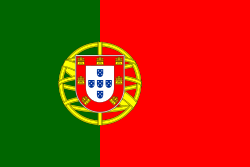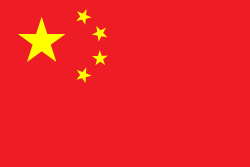Top Qs
Timeline
Chat
Perspective
Handover of Macau
1999 handover of Macau from Portugal to China From Wikipedia, the free encyclopedia
Remove ads
The handover of Macau from the Portuguese Republic to the People's Republic of China (PRC) officially occurred at midnight on 20 December 1999. This event ended 442 years of Portuguese rule in the former settlement, which began in 1557. Macau was settled by Portuguese merchants that year during the Ming dynasty era and was subsequently under various degrees of Portuguese rule until 1999. Portugal's involvement in the region was formally recognised by the Qing dynasty in 1749. The Portuguese governor João Maria Ferreira do Amaral, emboldened by British actions in the First Opium War and the Treaty of Nanking, attempted to annex the territory by expelling Qing authorities in 1846, but was assassinated in 1849.[1] After the Second Opium War, the Portuguese government, along with a British representative, signed the 1887 Sino-Portuguese Treaty of Peking that gave Portugal perpetual colonial rights to Macau on the condition that Portugal would cooperate in efforts to end the smuggling of opium.[1]
After the Proclamation of the People's Republic of China in 1949 and the transfer of China's seat from the Republic of China (ROC) to the PRC at the United Nations (UN) in 1971, then Chinese foreign Minister Huang Hua appealed to the UN Special Committee on Decolonization to remove Macau and Hong Kong from its list of colonies, preferring to engage in direct bilateral negotiations in getting the territories returned rather than the independence of the territories as was implied by its inclusion on the list.
On 25 April 1974, a group of left-wing Portuguese officers organized a coup d'état in Lisbon, overthrowing the right-wing Estado Novo regime that had controlled Portugal for 48 years. The new government began to transition Portugal into a liberal democracy that was committed to decolonization. The new government carried out such policies, and initially proposed Macau's handover to China at once.[2] However, the Chinese government rejected proposals for an early handover, believing that it would impact relations with Hong Kong.[2]
Nevertheless, on 31 December 1975, the Portuguese government had already withdrew its remaining troops from Macau. In 1976, Both Portugal and the PRC recognized Macau as a "Chinese territory under Portuguese supervision". On 8 February 1979, the Portuguese government decided to break off diplomatic relations with the Republic of China (ROC, Taiwan), and established diplomatic relations with the PRC the next day. The colony remained under de jure Portuguese rule until 20 December 1999, when its handover to China took place and became the Macau Special Administrative Region (SAR) of the PRC. The handover marked the end of almost six centuries of the Portuguese Empire since 1415.
Remove ads
Negotiations
Summarize
Perspective
On 20 May 1986, the People's Republic of China, along with Portugal, officially announced that talks on Macanese affairs would take place in Beijing on 30 June 1986. The Portuguese delegation arrived in Beijing in June, and was welcomed by the Chinese delegation led by Zhou Nan.[3][4]
The talks consisted of four sessions, all held in Beijing:
- The first conference: 30 June – 1 July 1986
- The second conference: 9–10 September 1986
- The third conference: 21–22 October 1986
- The fourth conference: 18–23 March 1987
During the negotiations, Portuguese representatives again offered to return Macau in 1987, but Chinese representatives rejected that year (as well rejecting previous requests in 1967, 1975, and 1977). China requested 1997, the same year as Hong Kong, but Portugal refused. 2004 was suggested by Portugal, as well as 2007 as that year would mark the 450th anniversary of Portugal renting Macau. However, China insisted for a year before 2000 as the Sino-British Joint Liaison Group in Hong Kong would be dissolved in 2000 as envisioned in 1986 (the Joint Liaison Group would ultimately be dissolved in 1999).[5] Eventually the year 1999 was agreed upon.[6]
On 13 April 1987, the Sino-Portuguese Joint Declaration by the governments of the People's Republic of China and the Portuguese Republic was formally signed by the Prime Ministers of both governments in Beijing.[7]
Remove ads
Transition period (1987–1999)
The twelve years between the signing of the "Sino-Portuguese Declaration" on 13 April 1987 and the handover on 20 December 1999 were known as "the transition".
On 15 January 1988, the Chinese Foreign Affairs Department announced the Chinese members of the groups that would begin the talk on the issues of Macau during the transition. On 13 April, the "Draft of the Basic Law of the Macau Special Administrative Region Committee" was established during the seventh National People's Congress, and on 25 October, the committee convened the first conference, in which they passed the general outline of the draft and the steps, and decided to organise the "Draft of the Basic Law of Macau Special Administrative Region Information Committee".[8] On 31 March 1993, the National People's Congress passed the resolution on the Basic Law of Macau, which marked the beginning of the latter part of the transition.[9]
Remove ads
Handover events
Summarize
Perspective
The flags of Portugal and China, countries that were participants in the ceremony.
The official handover was held at midnight on that day at the Macao Cultural Centre Garden purpose-built Temporary Pavilion. It was designed by Vicente Bravo Ferreira and constructed with a cost of MOP$60 million, measuring 20 metres (66 ft) high and covering an area of 6,000 square metres (65,000 sq ft).[10][11] The ceremony began in the evening and ended at dawn of 20 December.[12] At the same time, an all-night official celebration gala was held at Beijing's Tiananmen Square to mark this occasion.[13]
Stage design
Like the stage and chairs and podia of the Hong Kong handover ceremony two years before, the big green stage and chairs and podia in the pavilion were designed by renowned American professional stage designer, Donato Moreno. The left podium was attached with the National Emblem of the People's Republic of China, while the right podium was attached with the lesser Coat of arms of Portugal (Without the laurel, like the one on the Portuguese national flag). Both podia were located at stage centre in front of the chairs of the main representatives (5 for each country) and beside the flagpoles (2 for each country, taller ones for the sovereign state and the shorter ones for the territorial flag of Macau, correspond to the sovereign state it is under at the time during the ceremony). Unlike Hong Kong, Macau did not have a colonial flag, so the flag of the Municipality of Macau was used to represent Portuguese Macau at the ceremony. This flag was also used to represent Macau at international sporting events prior to the handover.[14]
Representatives
Representatives at the handover ceremony included:[15]
|
|
Other representatives at the ceremony included:
 Martti Ahtisaari, President of Finland[16]
Martti Ahtisaari, President of Finland[16] David Andrews, Minister for Foreign Affairs of Ireland[17]
David Andrews, Minister for Foreign Affairs of Ireland[17] Xanana Gusmão, East Timor Resistance Leader
Xanana Gusmão, East Timor Resistance Leader Chris Patten, European Commissioner for External Relations (also former Governor of Hong Kong)
Chris Patten, European Commissioner for External Relations (also former Governor of Hong Kong)
and representatives from more than 50 other countries and dozens of international organisations.
Sunday, 19 December 1999


- (12:05 Macau Time/4:05 Lisbon Time) – President Jiang Zemin and Premier Zhu Rongji arrived in Macau by Air China Boeing 747 from Beijing.[18][19]
- (16:30 Macau Time/8:30 Lisbon Time) – Governor Vasco Joaquim Rocha Vieira departed from his residence at Santa Sancha Palace for his office at Praia Grande Palace.
- (17:00 Macau Time/9:00 Lisbon Time) – Lowering of the national flag of Portugal at Praia Grande Palace, during which the Governor receives the flag.[20][21]
- (18:00 Macau Time/10:00 Lisbon Time) – The cultural event began with dragon and lion dances. These were followed by a slideshow of historical events and features of Macau, which included a mixture of the religions and races of the East and the West, and the unique society of native Portuguese born in Macau. In the final performance, 442 children who represented the 442 years of Portuguese history in Macau were presented along with several international stars to perform the song "Praise for Peace".
- (19:50 Macau Time/11:50 Lisbon Time) – A cocktail reception was held, but due to strong winds, the waterfront firework display could not be held as planned.[22]
- (21:00 Macau Time/13:00 Lisbon Time) – Official pre-ceremony banquet.
- (23:45 Macau Time/15:45 Lisbon Time) – Handover Ceremony officially begins. Portuguese President Jorge Sampaio reads the farewell speech, vowing solidarity with Macau.
- (23:58:30-23:59:40 Macau Time/15:58:30-15:59:40 Lisbon Time) – The Flag of Portugal and the Flag of the Municipality of Macau were slowly lowered to the Portuguese national anthem A Portuguesa, symbolising the end of Portuguese colonial rule in Macau.
Monday, 20 December 1999

- (00:00:00 Macau Time (same as Beijing Time)) – Sovereignty of Macau is officially transferred from Portuguese Republic to the People's Republic of China. The Flag of the People's Republic of China and the Macau regional flag were simultaneously raised to the Chinese national anthem "March of the Volunteers", to officially mark the beginning of the Chinese rule in Macau. Chinese leader Jiang Zemin gave a speech expressing his optimism for the "one country, two systems" implementation as the answer for Taiwan's eventual reunification. Grand celebrations begin in the mainland with fireworks displays over Tiananmen Square.
- (00:15 Macau/Beijing Time) – President Jorge Sampaio, Prime Minister Antonio Guterres and other Portuguese officials flew out by an Air Macau Airbus A320 from Macau International Airport to Bangkok's Don Mueang International Airport.[24][25] President Sampaio was scheduled to start his two-day visit to Thailand before heading to East Timor. But due to pneumonia, he shortened his stay in the Thai capital, postponed his East Timor trip and went back to Lisbon, Portugal the next day.
- (01:30 Macau/Beijing Time) – A swearing-in ceremony was held at the Macao Cultural Centre for various MSAR officials including Chief Executive Edmund Ho, Secretary for Administration and Justice Florinda Chan and Secretary for Economy and Finance Francis Tam.
- (10:00 Macau/Beijing Time) – The new Macau government hosted a celebration for 3,000 guests. Newly appointed Chief Executive Edmund Ho makes his inaugural speech.
- (12:00 Macau/Beijing Time) – People's Liberation Army troops from the Macau Garrison arrive by land.
- (13:00 Macau/Beijing Time) – Parade of various Macau-based organisations and institutions.
Remove ads
Aftermath
After the handover of Macau to China, the Macau Special Administrative Region, the Legislative Assembly and the Judiciary were all put into practice accordingly under the regulation of the Basic Law.
The introduction of the Individual Visit Scheme policy made it easier for Chinese mainland residents to travel back and forth. In 2005 alone, there were more than 10 million tourists from mainland China, which made up 60% of the total number of tourists in Macau. The income from the gambling houses in Macau reached almost US$5.6 billion.[26] On 15 July 2005, the Historic Centre of Macau was listed as a World Cultural Heritage site. The increasing development of tourism became a major factor in the rapid development of the economy of Macau.
For Portugal, the handover of Macau to China marked the end of the Portuguese Empire and its decolonisation process and also the end of European imperialism in China and Asia.[27]
Remove ads
Before and after handover
Remove ads
See also
References
Further reading
External links
Wikiwand - on
Seamless Wikipedia browsing. On steroids.
Remove ads



